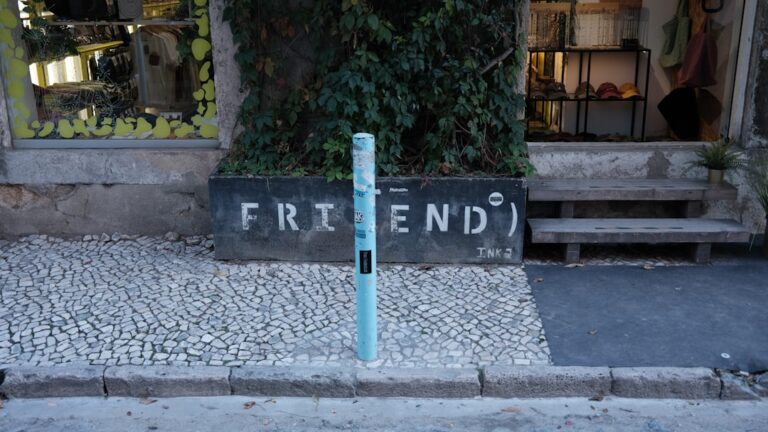Tips for Handling No-Show Teams in Group Activities: One of the most annoying problems you may face when planning group activities, be it a sports team, trivia night, or any other cooperative event, is dealing with no-show teams. When people do show up, this phenomenon may result in dissatisfaction, resource waste, and low engagement. Participation and general satisfaction can be greatly increased by comprehending the underlying causes of no-shows and putting effective strategies into place. Grab a Trivia Subscription for Weekly Fun! https://cheaptrivia.com/products/weekly-trivia-subscription-service
Key Takeaways
- No-show teams can be frustrating and disruptive to the overall productivity and morale of a group.
- Setting clear expectations for attendance is crucial in ensuring that team members understand the importance of showing up.
- Implementing a reservation system can help in managing attendance and ensuring that there are no last-minute surprises.
- Communicating the importance of attendance and the impact of no-shows on the team is essential for creating a sense of accountability.
- Offering incentives for attendance can motivate team members to prioritize their commitment to the group.
We will look at a number of strategies in this post to lessen the effects of no-show teams and promote a more dedicated team environment. It’s evident how frustrated people are with teams that don’t show up. You put a lot of time and effort into planning an event, only to discover that a number of members show up without warning. In addition to interfering with the scheduled events, this may also make those who do attend feel less motivated. The emotional cost can be high since it can cause dedicated participants to feel disappointed or resentful. Also, logistical issues may arise from no-shows.
If you have prepared questions & materials for a trivia night, for example, based on the anticipated number of attendees, a sudden decline in attendance can cause the entire event to go awry. It can result in awkward situations where the group dynamics change and the fun that was intended is lessened. The first step to effectively resolving these frustrations is understanding them. Establishing clear attendance expectations early on is one of the best strategies to reduce no-shows.
Attendance is more likely to be prioritized by participants when they recognize the value of their commitment. This can be accomplished by having open lines of communication regarding the goal of the event, the timetable, & the expectations of each team member. Think about distributing a preliminary invitation that provides a thorough explanation of these expectations. Emphasize the importance of each member’s contribution to the group’s accomplishments. If you are planning a Friends trivia night, for instance, highlight how everyone’s experience is improved by the knowledge of each participant.
By presenting attendance as a group duty, you foster a sense of accountability that motivates dedication. A reservation system can decrease the possibility of no-shows and expedite attendance management. You can assess interest levels and make any required changes to your plans by asking participants to confirm their attendance in advance.
In addition to assisting you with proper preparation, this system emphasizes the value of team commitment. Using apps or web resources that make it simple for participants to RSVP might be something to think about. To further encourage attendance, these platforms frequently send reminders as the event date draws near. Also, by implementing a reservation system, you can find trends in attendance patterns and use this information to adjust your strategy for subsequent events.
A key component of stressing the value of attendance is effective communication. Remind team members frequently of the positive impact their presence has on the event as a whole. You may offer examples from past occasions that demonstrate how involvement fosters enjoyment and camaraderie. Also, think about having an open conversation about the possible repercussions of no-shows. Although it’s important to keep things positive, team members may feel more accountable if you are open and honest about how absences impact morale and planning. Promote an atmosphere of open communication where participants can freely discuss any possible conflicts that might keep them from attending.
Group event attendance can be strongly encouraged with the help of incentives. Think about providing tokens of appreciation or acknowledgment to people who regularly attend. Offering drinks or snacks on trivia nights or even setting up a points system where attendees can receive incentives for showing up could be a simple way to do this. Creating friendly contests or challenges that demand complete teamwork to win might also be something to consider.
For instance, if you’re throwing a Friends trivia night, you might give out special prizes to teams that bring friends or bonus points to teams that show up in full. These rewards not only promote attendance but also improve the whole experience by building a sense of belonging. promoting accountability. Group members’ accountability is strengthened when consequences are established.
For example, you may determine that people who repeatedly skip events without warning will not be able to receive certain incentives or recognition at subsequent events. The key is clear communication. To create expectations that promote commitment, it is crucial to explain these repercussions in detail up front. This method guarantees that participants comprehend the significance of attending events and permits flexibility in actual conflict situations. Finding equilibrium.
You can achieve a balance between encouraging accountability and preserving a positive environment by enforcing consequences. By motivating them to prioritize their commitments, this strategy helps group members develop a sense of responsibility. No-show rates can be considerably decreased by encouraging an accountable culture among team members.
Urge participants to remind one another of forthcoming events and to communicate with one another regarding their commitments. Peer accountability can foster a positive atmosphere where everyone takes ownership of their involvement. Buddy systems or small groups could be implemented as part of your larger team structure. In this manner, people can communicate with each other and offer support before events.
Peer support increases the likelihood that team members will prioritize attendance and make a positive contribution to the group dynamic. Sending out confirmations and reminders closer to the event date can help reduce the number of people who fail to show up. To remind participants of the impending event, use a variety of communication channels, including social media, text messages, and email.
Think about setting up a countdown or a sequence of reminders to generate anticipation for the occasion. For example, to keep participants interested & excited about the event, include interesting facts or trivia questions about the show in your reminders if you’re hosting a Friends trivia night. Attendance rates can be greatly impacted by a friendly and inclusive environment. Participants are more likely to prioritize their participation in group activities when they feel appreciated & included. Make an effort to foster an atmosphere where people can freely express themselves and share their thoughts.
Actively seek out feedback from every team member and promote candid conversations about preferences for upcoming events. Everyone’s sense of ownership is fostered when they participate in the planning process, & this can increase commitment and excitement for attending events together. Setting expectations and promoting accountability are crucial, but it’s also critical to maintain your flexibility and empathy in the face of disagreement.
Since life can be unpredictable, there may occasionally be good reasons why someone is unable to attend an event. You can foster an environment where your team members feel comfortable sharing their difficulties honestly by showing empathy and understanding for their circumstances. This method not only improves relationships but also motivates people to make attendance a priority when they can. Lastly, asking your team members for input following each event can yield insightful information about what went well and what needs improvement.
Get feedback on how to improve upcoming events and promote candid conversations about attendance problems. You can show that your team members’ opinions are valued by actively listening to their input & making the required changes in response. This cooperative method encourages people to take responsibility for their involvement in upcoming events and builds a sense of community. To sum up, dealing with the problem of no-show teams necessitates a multipronged strategy that incorporates honest communication, accountability procedures, rewards, and a welcoming environment. By carefully putting these tactics into practice, you can foster an atmosphere where involvement is respected and promoted, which will eventually result in more fruitful group projects and improved team spirit.
If you’re looking for more fun trivia to spice up your bar trivia night, check out this article on the Naughty vs. Nice Fun Trivia Questions. This list of questions will keep your friends entertained and engaged throughout the night, making it a great addition to your trivia lineup. So next time you have a no-show team at your Friends bar trivia night, you’ll have plenty of backup questions to keep the fun going!
Check Out All Our Themed TV Trivia Packs!
FAQs
What is a no-show team at bar trivia night?
A no-show team at bar trivia night refers to a team that has registered to participate in the trivia event but does not show up on the night of the event.
How can you handle no-show teams at bar trivia night?
To handle no-show teams at bar trivia night, you can consider implementing a policy that requires teams to confirm their attendance in advance or pay a small fee to reserve their spot. Additionally, you can also have a waiting list for teams who want to participate, so that if a team doesn’t show up, another team can take their place.
What are the potential impacts of no-show teams at bar trivia night?
No-show teams at bar trivia night can impact the overall experience for other participants and the host. It can lead to empty spots at tables, which can affect the atmosphere and energy of the event. Additionally, it can also impact the revenue of the bar or venue hosting the trivia night if they were expecting a certain number of participants.
How can you encourage teams to show up for bar trivia night?
To encourage teams to show up for bar trivia night, you can consider offering incentives such as prizes for the winning team, drink specials, or creating a fun and engaging atmosphere. Additionally, promoting the event through social media and word of mouth can also help generate excitement and encourage teams to attend.






